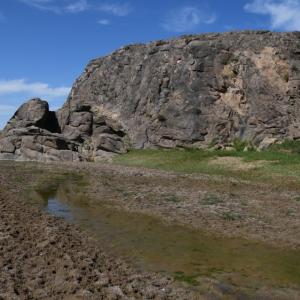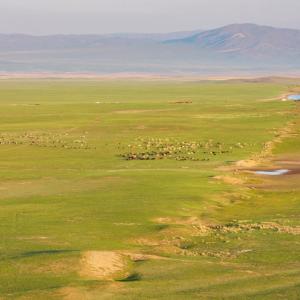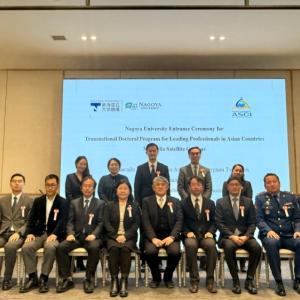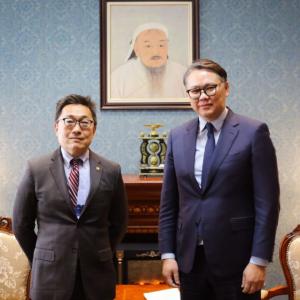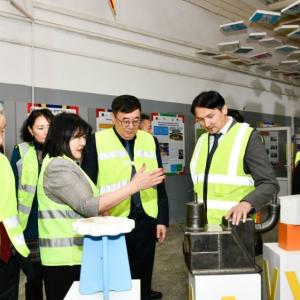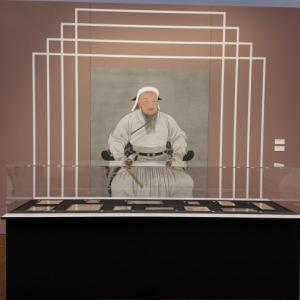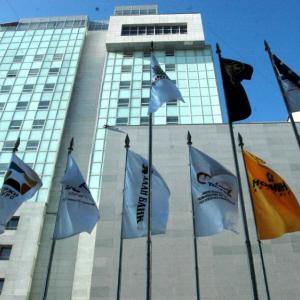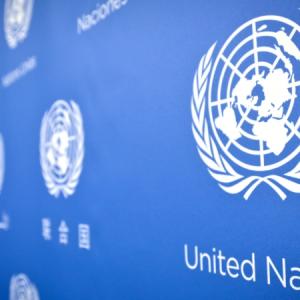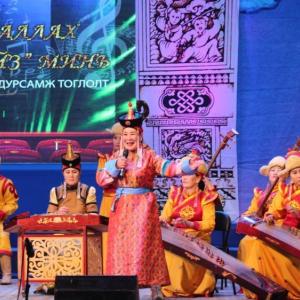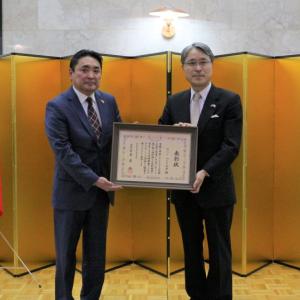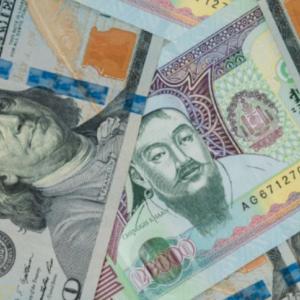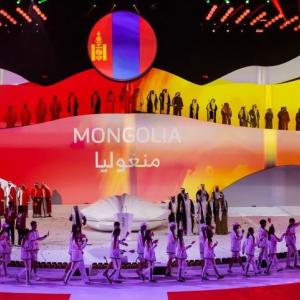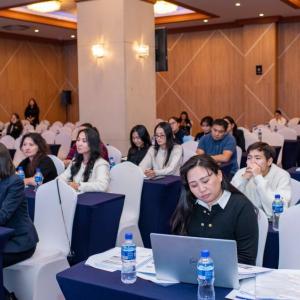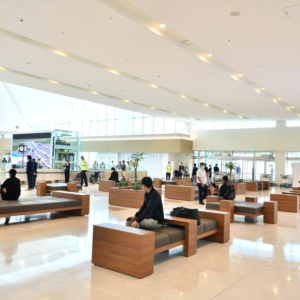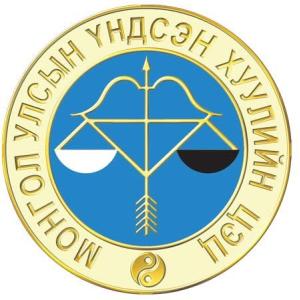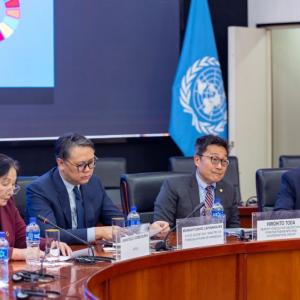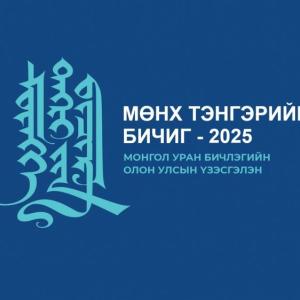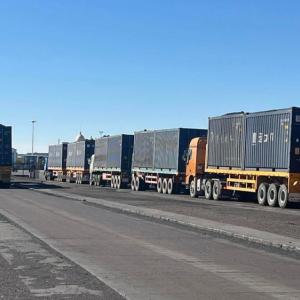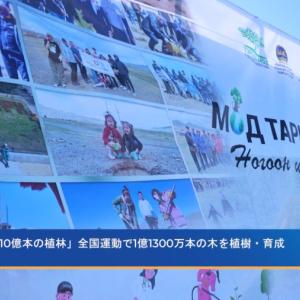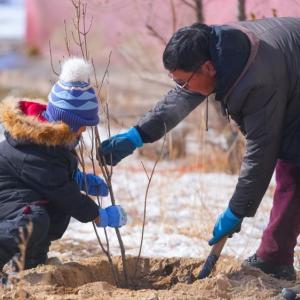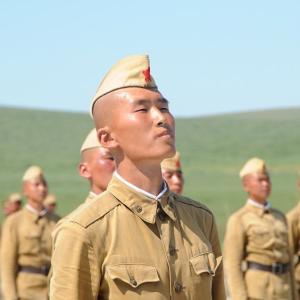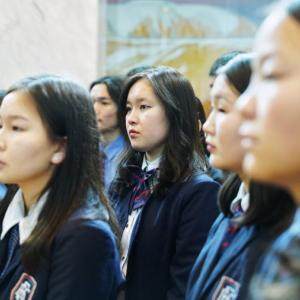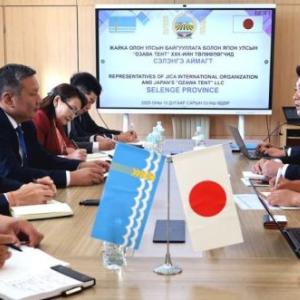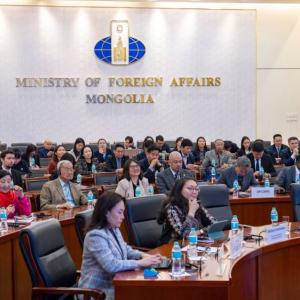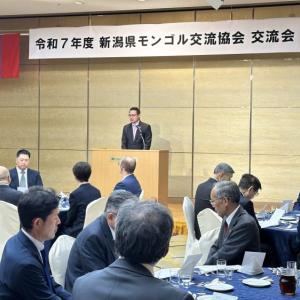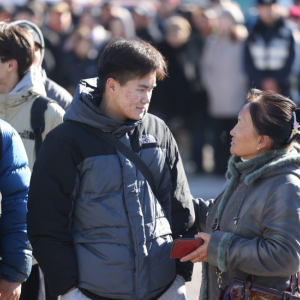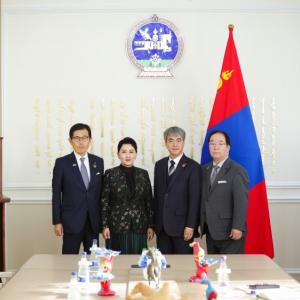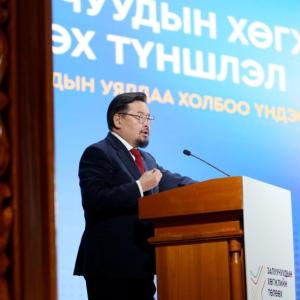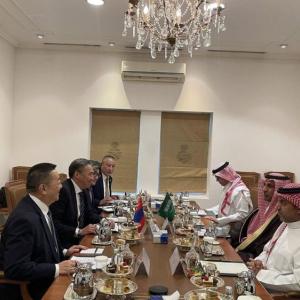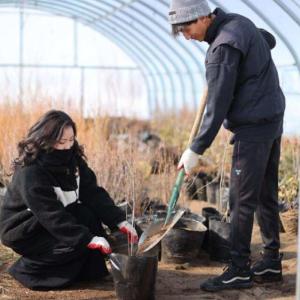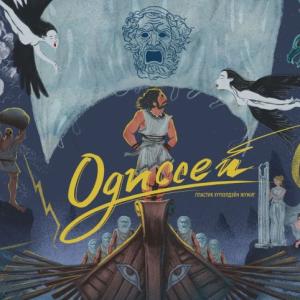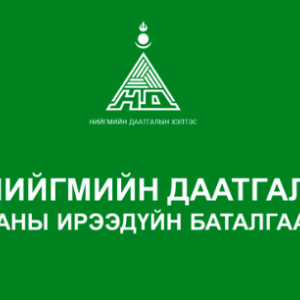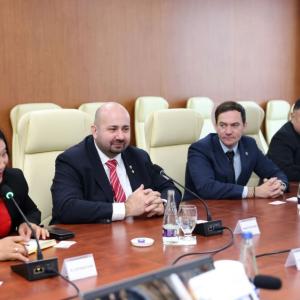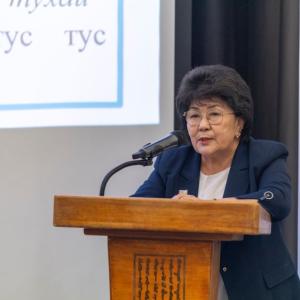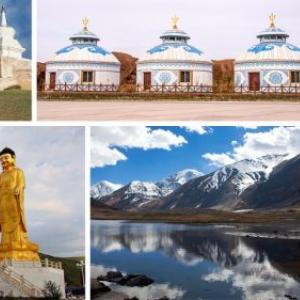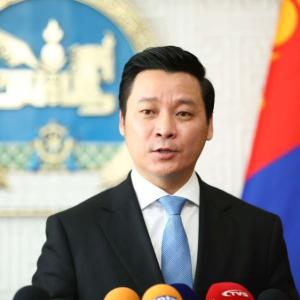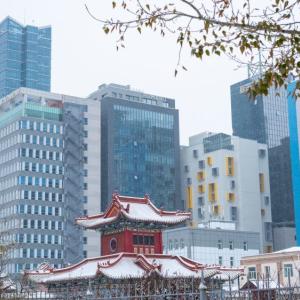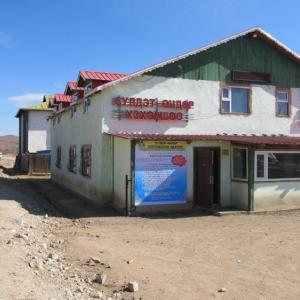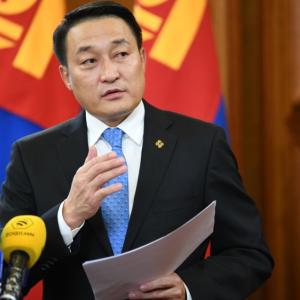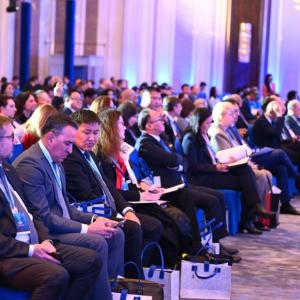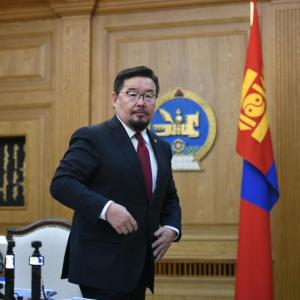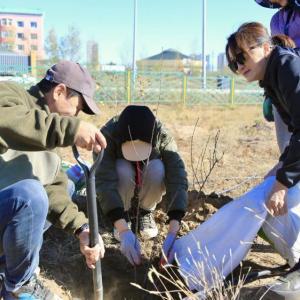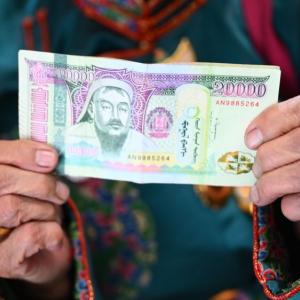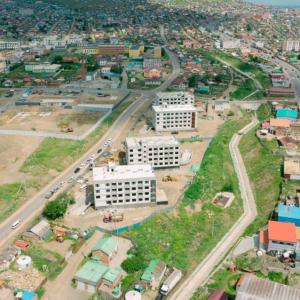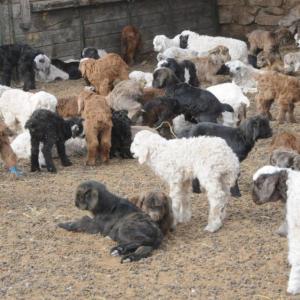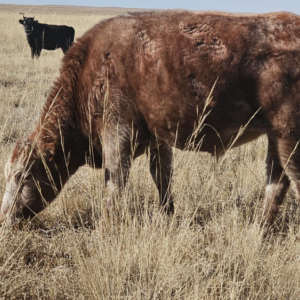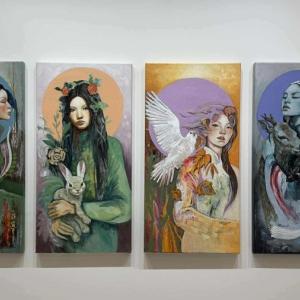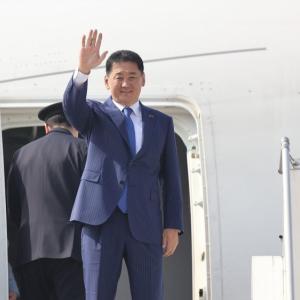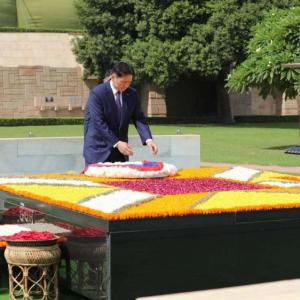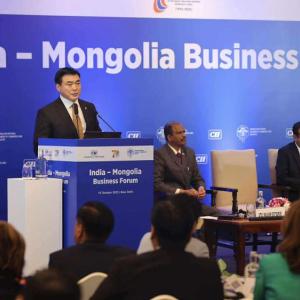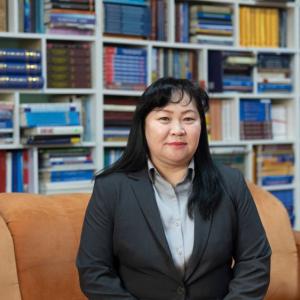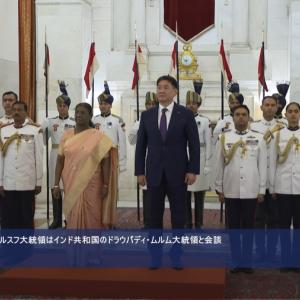Saint Muse Festival: A Global Stage for Contemporary Theatre
Society
Ulaanbaatar, May 26, 2025 /MONTSAME/. The 18th Saint Muse International Theatre Festival concluded on May 24, 2025, marking a notable milestone in its evolution into a global platform for contemporary stage arts.
Held under the auspices of the Governor’s Office of Ulaanbaatar City and jointly organized by the Saint Muse Academy and the Mongolian Center of the International Theatre Institute, this year’s Festival brought together artists and theatre experts from ten countries.
The 2025 edition expanded its traditional format to include two new categories: Puppet Theatre and Best Investor. The core competition remained structured around Full-Length Plays (Drama and Children’s Theatre) and Small-Scale Plays (Duo and Solo Performances).
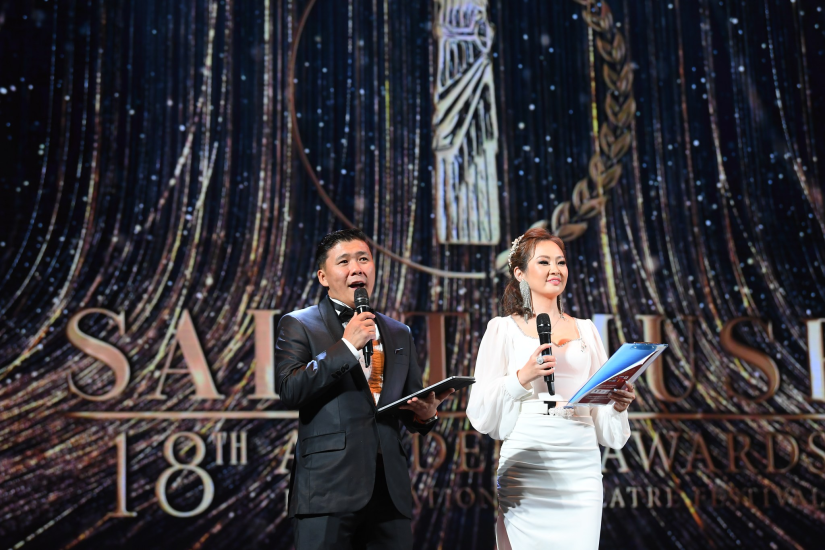 In total, 92 productions from Mongolia and abroad were submitted to the nomination committee. Following a first-round selection, 23 works from ten countries, including Mongolia, Uganda, Denmark, Slovenia, Hong Kong Special Administrative Region of the People's Republic of China, Japan, Romania, Greece, the United Arab Emirates, and Tunisia, advanced to the final round. These were nominated in 21 categories across four divisions.
In total, 92 productions from Mongolia and abroad were submitted to the nomination committee. Following a first-round selection, 23 works from ten countries, including Mongolia, Uganda, Denmark, Slovenia, Hong Kong Special Administrative Region of the People's Republic of China, Japan, Romania, Greece, the United Arab Emirates, and Tunisia, advanced to the final round. These were nominated in 21 categories across four divisions.
The Festival honored theatrical excellence in a wide range of genres and styles. In the Full-Length Play category, “The Nutcracker” by Pro Theatre of Mongolia claimed top honors, while the Small-Scale Play award went to “Not I,” presented by Theatre Tony Bulandra of Romania.
Several other standout productions and artists were recognized for their contributions:
Best Director: O. Itgel for “The Three Musketeers”
Best Set Design: S. Ariunbold for “High Sanctuary”
Best Composer: Sh. Ulziibayar for “High Sanctuary”
Best Actor in a Leading Role: S. Bold-Erdene as Winston Smith in “1984”
Best Actress in a Leading Role: Angeliki Lemoni (Greece) as Jocasta in “Oedipus Rex”
Best Supporting Actor: A. Tserenbaljir as The Dog in “High Sanctuary”
Best Supporting Actress: T. Enerel as Constance Bonacieux in “The Three Musketeers”
The newly introduced Puppet Theatre category honored the State Puppet Theatre’s production “The Horsehead Fiddle,” reflecting the growing interest in puppet arts among international and Mongolian artists alike.
Among duo performances, Greece’s “Omikronyiota” stood out, with Ioannis Didaskalou winning Best Director and Athanasia Chalkia and Zoi Papari awarded Best Set Design. Mongolian actor P. Munkhdelger received Best Actor for his role in “The Rat Hunt.”
In the Children’s Theatre category, three productions competed: “The Nutcracker” by Pro Theatre, My Friend the Beast by the Music and Drama Theatre of Dornod aimag, and “The Pig’s Lone Peach” by the Temuujin Children’s Theatre of Bayankhongor aimag.
“The Nutcracker” emerged as a standout, earning:
Best Director: B. Ankhbaatar
Best Stage Design: B. Bilguun
Best Actor in a Leading Role: M. Tuguldur as Drosselmeyer
Meanwhile, “My Friend the Beast” received two major acting awards:
Best Actress in a Leading Role: T. Khaliunsor as Zeerenkhuu
Best Supporting Actor: E. Batmunkh as the Wolf Father
The Solo Play category featured a compelling mix of local and international entries, including “Taiga’s Brown” of the State Academic Drama Theatre of Mongolia, “The Lives of the Walls” of the Theatre Lab of Mongolia, and international works such as “Not I” (Romania), “Candle” (UAE), and “Thirst” (Tunisia).
Romanian director Caramida Tanase Andreea took home both Best Director and Best Stage Designer for “Not I.” Mongolian playwright D. Uriankhai won Best Playwright for “Life of Walls,” a piece he described as impossible to stage during the socialist era due to its critical perspective on society, media, and human nature. D. Uriankhai emphasized, “In some other time, a play like The Lives of the Walls, which critiques media, society, and even calls for revolution, might have been banned. But today, I stand here receiving an award for it. That alone speaks volumes about the freedoms and responsibilities we have as artists in this society.”
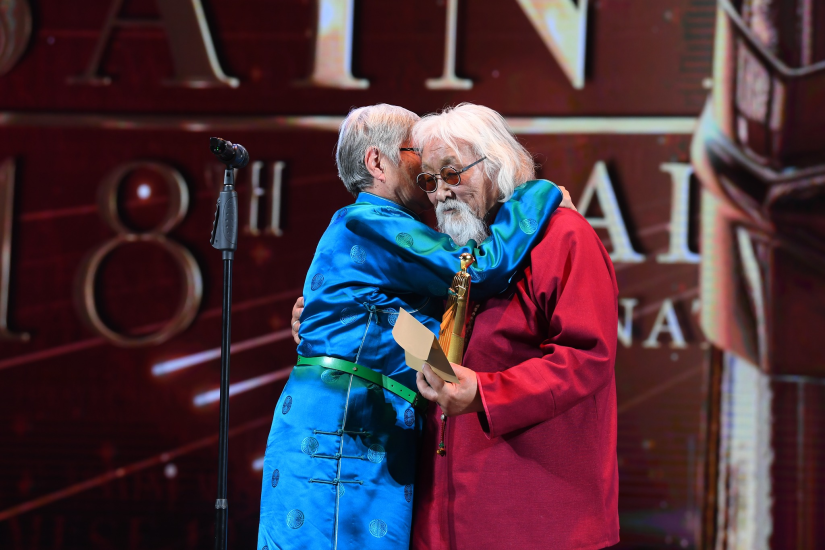 Best Actor went to B. Boldkhuu for his role in “The Lives of Walls,” and Best Actress to Khemiri Chaima for her performance in Tunisia’s “Thirst.”
Best Actor went to B. Boldkhuu for his role in “The Lives of Walls,” and Best Actress to Khemiri Chaima for her performance in Tunisia’s “Thirst.”
One of the defining features of this year’s Festival was the presence of a truly international jury, invited to bring global perspectives to the evaluation process. The panel included:
Jessica Kaawa, President of the International Theatre Institute (Uganda)
Atsushi Kakumoto, Director, Theatre Scholar, and Founder of D’UOMA ex machina (Japan)
Denny Dennis, Founder of the Winter Movement Academy (Denmark)
Tatiana Azman, Theatre Critic and Playwright (International Theatre Institute)
Janice Poon, Playwright and Educator from the School of Drama in Hong Kong
In exclusive interviews, international participants expressed admiration for the Festival’s production standards, hospitality, and spirit of cultural exchange.
The Romanian delegation, Caramida Tanase Andreea and Casanra-Elena Topologeanu, of “Not I” reflected, “'Not I' was produced in June 2021. Since then, we’ve performed in South Korea, India, Oman, Lithuania, Cyprus, and now Mongolia. We’ve won awards in Romania and Oman, and today we received Best Scenography, Best Actress, Best Director, and the Grand Prix. Here, we felt loved and seen through our work. Mongolians are very open and generous. The recognition we received reflects a transparent process. The Festival had a truly international atmosphere - it even felt like winning the Oscars. Mongolian culture is raw and powerful. The performance with the horsehead fiddle was unforgettable, we could feel the horses running across the steppe. This authenticity lives in Mongolian theatre. In today’s world, where people are obsessed with their phones, modern theatre needs this rawness - its spirit, energy, and emotion. Our play reflects this concern. It shows a person trapped in the digital world, like under a dictatorship. Our message is: Don’t let technology use you, use it for yourself. We should use AI and whatever comes next to support the aliveness of theatre.”
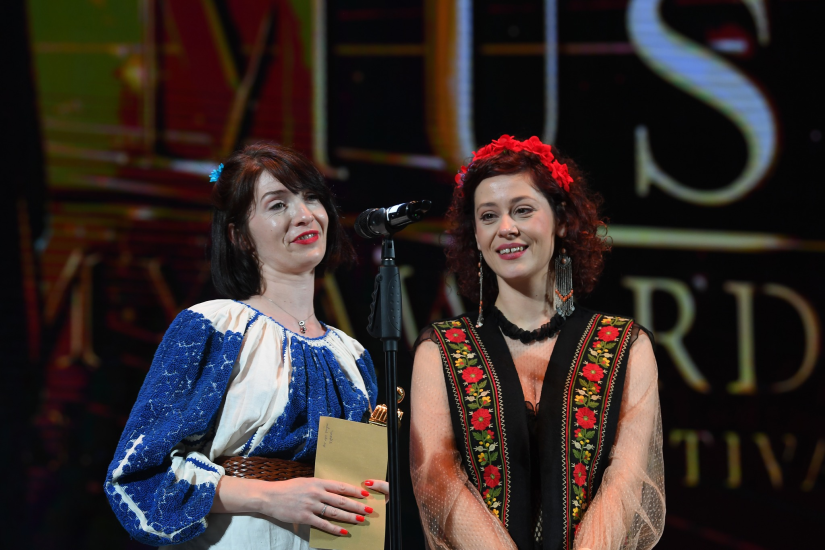 Greek artist Vangelis Mageiros of “Oedipus Rex” noted, “It is my first time in Mongolia, and I was honored to be nominated alongside my team. It was an amazing experience. I’m really glad my colleague Angeliki Lemoni won an award. The theatre system here is very powerful, especially the actors’ expressions, movement, and physical energy. If I’m lucky, I’d love to return and explore more deeply.”
Greek artist Vangelis Mageiros of “Oedipus Rex” noted, “It is my first time in Mongolia, and I was honored to be nominated alongside my team. It was an amazing experience. I’m really glad my colleague Angeliki Lemoni won an award. The theatre system here is very powerful, especially the actors’ expressions, movement, and physical energy. If I’m lucky, I’d love to return and explore more deeply.”
Abdullah Khadim from the UAE’s AlMaseelah Theatrical shared, “This was our first time at Saint Muse. Our play “The Candle” was the first Arabic-language performance ever presented here. It was truly unique to participate in such a diverse theatre event in Asia. The dedication of the organizers stood out. We saw both youth and elders working together, even the technicians were supportive. The nomination process and the closing ceremony were inspiring. In the UAE, we range from futuristic theatre to traditional styles—and here, we saw that same richness.”
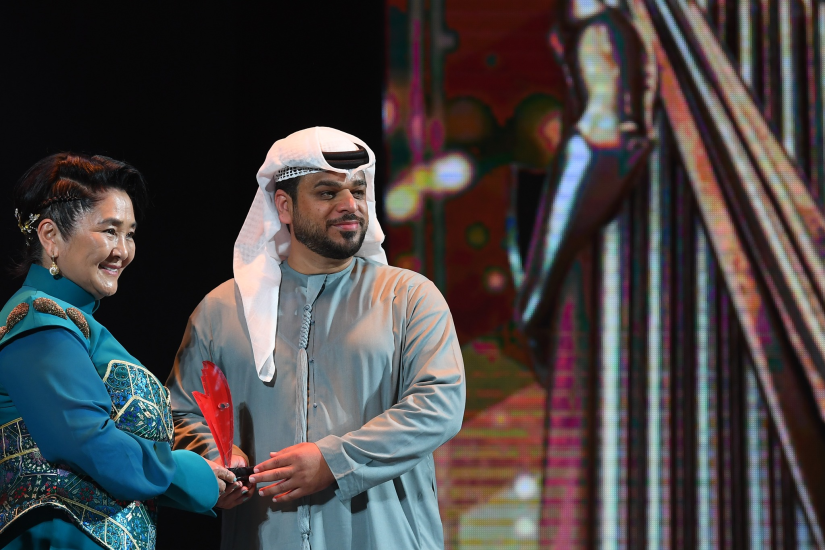 Kakumoto Atsushi, Japanese director and guest judge, noted, “This is my third time at Saint Muse. This year, I saw more young Mongolian artists and appreciated the growing diversity. While the State Drama Theatre is central, I was glad to see participation from rural and suburban theatres as well. As a guest judge, I believe international status isn’t measured by how many foreign invitees attend, but by the open-mindedness of participants. Technology poses challenges for live theatre, but it can also be used to revitalize it and reach new levels of expression.”
Kakumoto Atsushi, Japanese director and guest judge, noted, “This is my third time at Saint Muse. This year, I saw more young Mongolian artists and appreciated the growing diversity. While the State Drama Theatre is central, I was glad to see participation from rural and suburban theatres as well. As a guest judge, I believe international status isn’t measured by how many foreign invitees attend, but by the open-mindedness of participants. Technology poses challenges for live theatre, but it can also be used to revitalize it and reach new levels of expression.”
For the first time, a Best Investor award was introduced to honor organizations supporting theatre under financial strain. The “Ogtorguin Tsagaan Garid” Foundation was recognized for sponsoring High Sanctuary by the Drama Theatre of Zavkhan aimag. Actress and People’s Artist of Mongolia Sarantuya Sambuu remarked, “Our artists often struggle with funding. This award recognizes the lifeline that sponsors provide.”
While the Saint Muse Festival has long been a key event in Mongolia’s theatre calendar, its increasingly international profile suggests it may soon earn a place among the major theatre festivals in Asia and beyond. With its mix of grassroots innovation, professional standards, and global dialogue, the Saint Muse Festival is becoming a true meeting point for diverse stage traditions - from Africa to Europe to East Asia.
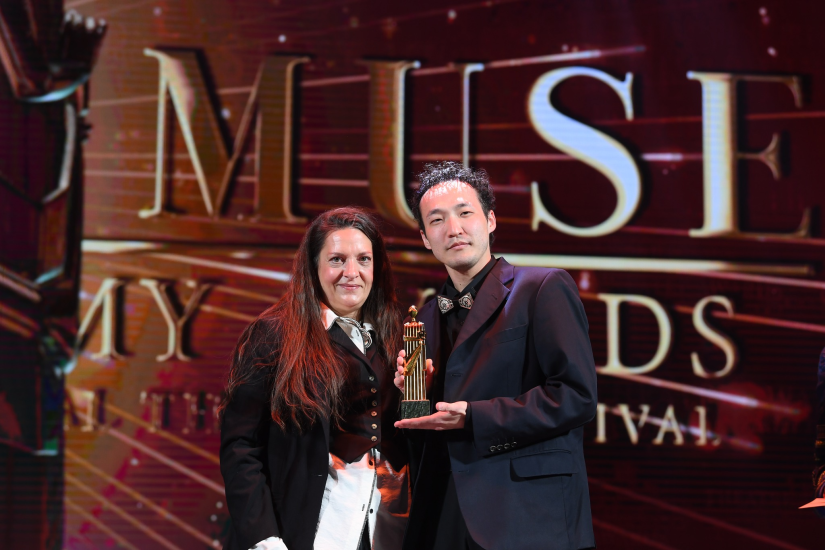

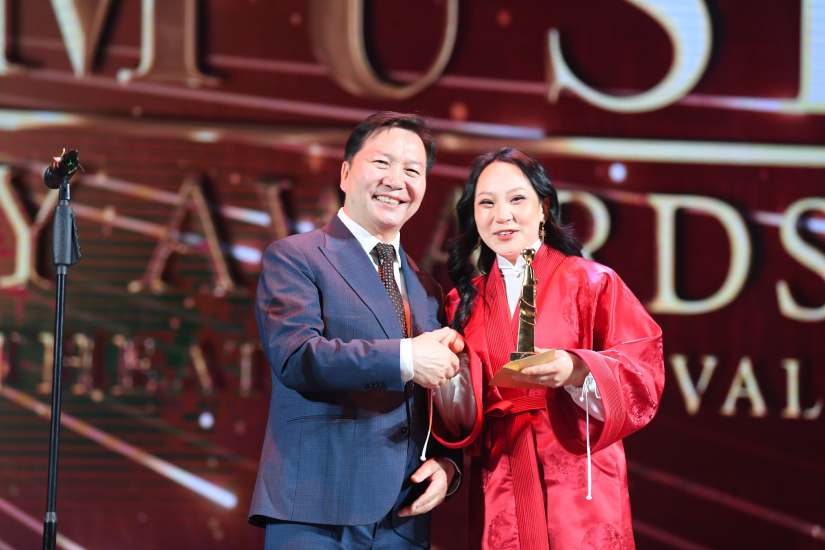
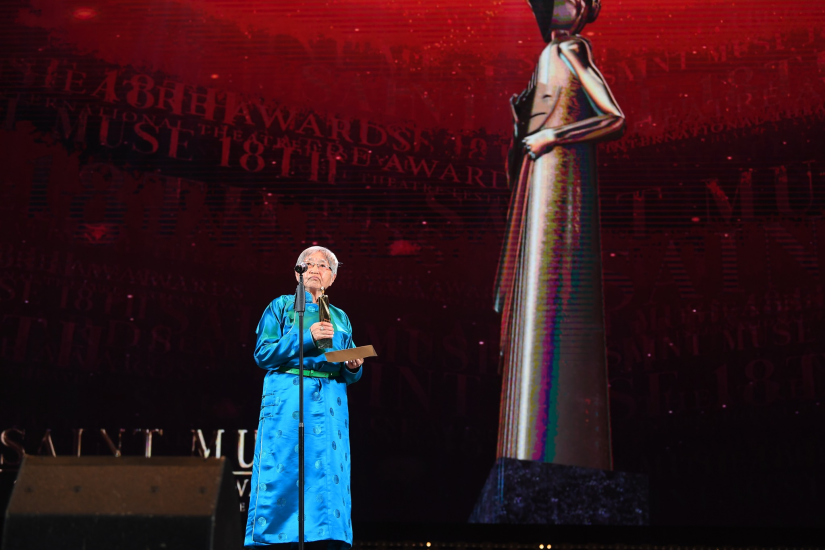
 Ulaanbaatar
Ulaanbaatar






